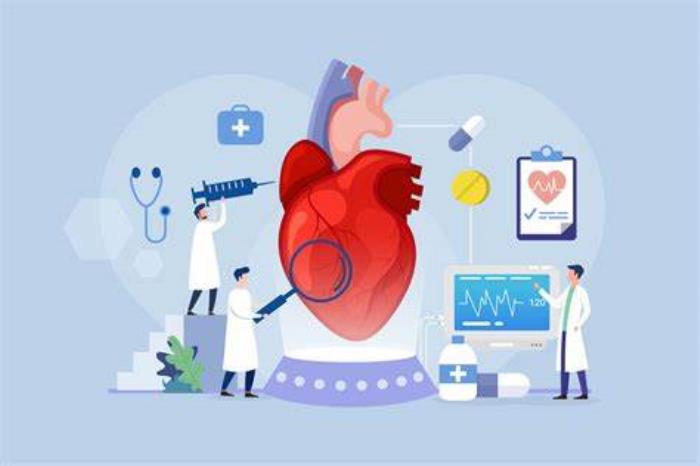Heart transplantation represents a life-saving medical procedure, but it is also fraught with complex ethical considerations. These dilemmas arise from the finite availability of donor hearts, the varying needs of patients, and the challenges of equitable resource allocation. The intersection of medicine and ethics in heart transplantation requires careful navigation to ensure that decisions uphold fairness, respect for individual autonomy, and the sanctity of life.
Medical disclaimer: This content is for general awareness and does not replace a doctor’s consultation. For diagnosis or treatment decisions, consult a qualified specialist.
Understanding the Ethics of Organ Donation and Allocation
Organ donation is the foundation of heart transplantation, yet it involves significant ethical considerations. Questions about who should receive priority for a donor heart are guided by established allocation criteria, which aim to balance urgency, medical suitability, and potential for long-term survival. Ethical frameworks such as the principle of justice ensure that decisions are made transparently and equitably, minimizing bias while respecting the donor's intent.
Balancing Medical Need with Fair Distribution of Donor Hearts
The demand for donor hearts far exceeds the supply, creating a need to prioritize patients. Medical urgency and compatibility with the donor organ are critical factors, but so is the ethical principle of fairness. Balancing these elements requires systems that assess the likelihood of success while avoiding favoritism. Achieving this balance remains one of the most challenging aspects of heart transplantation ethics.

The Role of Informed Consent in Heart Transplant Procedures
Informed consent is a cornerstone of ethical medical practice. For heart transplant candidates, understanding the risks, benefits, and potential outcomes of the procedure is essential. Physicians must ensure that patients are fully informed about their treatment options, the possibility of complications, and the lifelong commitment to immunosuppressive medications. Clear communication fosters trust and empowers patients to make autonomous decisions.
Addressing the Ethics of Live and Deceased Donor Consent
Consent from donors—whether living or deceased—is an ethical imperative. For deceased donors, ensuring that their prior wishes or those of their family are honored is crucial. For living donors, the decision to donate must be voluntary, free from coercion, and informed by a comprehensive understanding of the risks involved. Transparency and respect for the donor’s autonomy are essential in maintaining ethical integrity.
The Challenge of Cultural and Religious Beliefs in Organ Donation
Cultural and religious beliefs significantly influence attitudes toward organ donation. While some traditions support the act as a form of altruism, others may oppose it due to spiritual or ethical concerns. Navigating these differences respectfully is vital to promoting donation while honoring individual beliefs. Healthcare providers play a critical role in fostering dialogue and addressing misconceptions within these contexts.
Ethical Implications of Financial Inequality in Accessing Transplants
Financial disparity often creates unequal access to heart transplantation. While some patients can afford the high costs associated with the procedure and post-transplant care, others face insurmountable financial barriers. This raises ethical questions about how to ensure equitable access to life-saving treatments regardless of socioeconomic status. Advocacy for policies that expand healthcare coverage and donor organ availability is necessary to address these inequalities.
Transparency in the Organ Allocation Process: Ensuring Fairness
The organ allocation process must be transparent to ensure fairness and maintain trust among patients, families, and the medical community. Adhering to objective criteria such as medical urgency, compatibility, and waitlist duration ensures equitable distribution of available organs.
The Debate Over Age and Priority in Transplant Eligibility
Ethical debates surround whether age should factor into transplant eligibility and prioritization. Balancing fairness and the potential for long-term success remains a challenge, as some argue for prioritizing younger patients with better prognoses, while others advocate for equal access regardless of age.
Addressing the Use of Artificial Hearts as a Temporary Solution
Artificial hearts, often used as a bridge to transplant, raise ethical questions about resource allocation and patient selection. Determining who receives these devices while awaiting a donor heart involves weighing factors like survival probability and quality of life.
Ethical Considerations in Pediatric Heart Transplantation
Pediatric heart transplantation presents unique ethical challenges, including decisions about prioritizing younger recipients, addressing parental consent, and ensuring that the allocation process accommodates the specific needs of children.
The Role of Technology in Expanding the Donor Pool Ethically
Innovations like organ preservation technology and xenotransplantation could expand the donor pool, but they must be implemented ethically. Balancing the potential to save lives with concerns about safety, consent, and accessibility is crucial for maintaining public trust.
Navigating Ethical Dilemmas in High-Risk Transplant Cases
High-risk transplant cases, such as those involving patients with severe comorbidities or advanced age, present ethical challenges. Medical teams must carefully weigh the potential benefits against the risks and ensure that patients are fully informed of their options.
Balancing Experimental Procedures with Patient Safety
Introducing experimental techniques in heart transplantation requires balancing innovation with patient safety. Ethical considerations include ensuring informed consent, prioritizing patient well-being, and adhering to rigorous clinical trial standards.
Ethical Concerns in Cross-Border Organ Transplantation
Cross-border transplantation raises issues like disparities in healthcare access, organ trafficking, and differing ethical standards. Addressing these concerns involves establishing international guidelines to prevent exploitation and promote equitable practices.

Ensuring Equity in Access for Marginalized Communities
Marginalized communities often face barriers to accessing heart transplantation. Ethical frameworks must address systemic inequities, such as socioeconomic disparities, geographic location, and discrimination, to ensure that all patients have fair access to care.
Ethical Challenges in Organ Trafficking and Black Market Concerns
Organ trafficking and black market activities undermine the ethical foundations of transplantation. Combatting these issues requires stricter regulations, international cooperation, and increased public awareness to promote legitimate organ donation practices.
The Role of Public Awareness Campaigns in Promoting Ethical Donations
Public awareness campaigns play a critical role in encouraging ethical organ donation. Educating the public about donation processes, addressing misconceptions, and promoting a culture of altruism can increase the donor pool while maintaining ethical standards.
Building Trust Between Patients, Donors, and Medical Teams
Trust is essential in heart transplantation. Open communication, informed consent, and transparency throughout the process help build confidence between patients, donors, and medical teams, fostering ethical practices and positive outcomes.
The Role of Heart Transplantation in Treating Severe Cardiomyopathy
Discover the role of heart transplantation in treating severe cardiomyopathy. This article explains how heart transplant surgery is used as a life-saving option for patients with advanced cardiomyopathy, a condition where the heart becomes too weak to pump blood effectively.
Heart Transplantation and the Risk of Post-Transplant Cancer
Learn about the risk of post-transplant cancer. This blog addresses the potential increased risk of cancer after heart transplantation, caused by immunosuppressive medications and other factors, and the measures taken to monitor and reduce this risk.
Conclusion: The Importance of Ethics in Advancing Heart Transplantation
Ethical considerations are central to the success and advancement of heart transplantation. By addressing issues like fairness, transparency, and equity, the medical community can ensure that heart transplantation remains a life-saving solution grounded in trust and integrity.
Best Heart Transplant in India
The Best Heart Transplant in India offers a life-saving solution for patients with end-stage heart failure, using advanced surgical techniques and comprehensive post-transplant care.
Best Heart Transplant Hospitals in India
The Best Heart Transplant Hospitals in India provide state-of-the-art facilities, skilled transplant specialists, and multidisciplinary teams for seamless patient care and recovery.
Heart Transplant Cost in India
The Heart Transplant Cost in India is structured to offer affordability while ensuring access to world-class transplant services and comprehensive care packages.
Best Heart Transplant Surgeons in India
The Best Heart Transplant Surgeons in India have extensive experience in performing complex transplants, ensuring precise techniques and personalized patient care for optimal outcomes.
FAQs
What are the main ethical issues surrounding heart transplantation?
Ethical issues include organ allocation fairness, age and priority debates, informed consent, resource allocation, and preventing unethical practices like organ trafficking.
How is fairness ensured in organ allocation for transplants?
Fairness is achieved by adhering to established criteria such as medical urgency, compatibility, and waitlist duration, alongside transparent decision-making processes.
What role does informed consent play in heart transplantation ethics?
Informed consent ensures that patients and donors fully understand the risks, benefits, and alternatives involved, fostering trust and ethical transparency.
Are there ethical concerns about using artificial hearts?
Yes, concerns include resource allocation, patient selection, and ensuring equitable access to these life-saving devices.
How do cultural and religious beliefs impact heart transplantation ethics?
Cultural and religious beliefs influence decisions about donation and transplantation, requiring sensitive communication and respect for diverse perspectives to uphold ethical standards.
Heart transplant surgery, while lifesaving, carries several risks and potential complications. These include rejection of the donor heart, primary graft failure, infection, bleeding, blood clots, kidney failure, breathing problems, and coronary allograft vasculopathy (CAV). Understanding these risks is crucial for patients and their families to make informed decisions and prepare for post-surgery care. Risks and Complications of Heart Transplant Surgery
To be considered for heart transplant surgery in India, patients must meet specific criteria. These include having end-stage heart disease that is not responding to other treatments, being within the age range of 18 to 60 years (sometimes up to 69 years), and being in good general health without major conditions like cancer or kidney disease. Additionally, patients must have a strong support system in place for post-operative care and recovery. The Eligibility Criteria for Heart Transplant Surgery in India
Cardiac rehabilitation is a critical component of recovery after a heart transplant. It helps patients regain strength, improve mobility, and speed up recovery. These programs typically include medically supervised exercise, nutrition counseling, health education, and psychological support. Engaging in cardiac rehabilitation can significantly enhance the quality of life and long-term health outcomes for heart transplant recipients. The Role of Cardiac Rehabilitation After a Heart Transplant